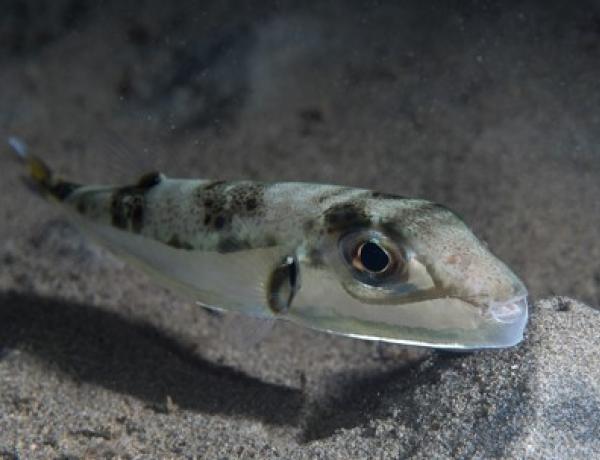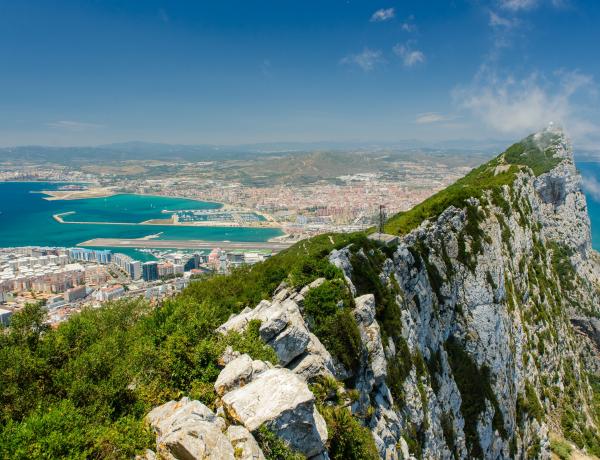There are two UK Overseas Territories (UKOTs) in the Mediterranean comprised of Gibraltar and the Sovereign Base Areas of Akrotiri and Dhekelia in Cyprus.
Gibraltar is in the Western Mediterranean close to the Strait of Gibraltar, an important shipping route and migratory corridor for marine species. Over 60% of British Gibraltar Territorial Waters (BGTW) are protected, with the largest designated marine protected area located in its Southern Waters.
The Sovereign Base Area Administration (SBAA) is the civil government of the Sovereign Base Areas (SBAs) of Akrotiri and Dhekelia, located on the southern coast of Cyprus in the eastern Mediterranean. The SBAA has an important role in support of military functions as well as undertaking civil functions. Approximately 8% of its territorial waters, and the majority of the terrestrial coastline are designated as conservation sites under SBAA legislation.
The Mediterranean is one of the most highly valued seas in the world, due to its rich biodiversity, including many endemic species, and the ecosystem benefits it provides to people, including its tourism sector.
There is clear evidence of physical changes in the Mediterranean, which are projected to continue with future climate change; these include:
- sea surface temperatures (SST) which have increased by around 1.5°C between 1982 and 2018, with a further 2 to 3°C projected this century.
- projected increases in salinity at the surface and at depth due to high evaporation rates in the Mediterranean.
- An estimated sea-level rise of between 45 – 81 cm by 2100 that could put 5 million inhabitants at risk of severe flooding, and enhance erosion around the Mediterranean basin.
- Deoxygenation occurring in shallow waters in the Eastern Mediterranean. At the Western end this is ameliorated by intake of colder, relatively oxygenated Atlantic water.
- Decreased pH (ocean acidification) which has been reported in both incoming Atlantic water and within water masses within the Eastern Mediterranean. This is projected to intensify, putting habitats and species at risk (e.g. cold water corals).
Whilst evidence of climate change is growing across the region, the local evidence base for Mediterranean UKOTs is sparse.
From an initial long-list of impacts on biodiversity and society for this region, two priority climate change issues were identified by a regional working group of scientific experts and policymakers:
Nature based solutions can effectively and sustainably address the challenges of climate change in the Mediterranean, but their uptake in policy and planning, particularly in coastal and marine sectors, is limited.
For example, seagrass meadows are important for capturing and storing CO₂, acting as natural mitigation to climate change. In the Southern Waters of Gibraltar Marine Protected Area, initial seagrass restoration trials have been initiated. Plans are in place to carry out a more extensive seagrass restoration project for two species, Cymodocea nodosa and Zostera marina.
More broadly, Marine Protected Areas, when used effectively, can play a key role in promoting restoration, and reverse degradation of ecosystems in these areas.
As well as addressing the lack of data and evidence of climate change impacts in the Mediterranean OTs, other steps include:
- Greater emphasis on mapping stakeholder perspectives and case studies is also required, building on projects such as the RELIONMED LIFE project in Akoritiri that is building capacity and raising awareness of how to deal with invasive lionfish.
- Assessments and evaluations are required to ensure decision makers understand the economic value or ecosystem service benefits of protecting the marine environment.
- Promoting an adaptive management approach to limit socioeconomic losses, e.g. as part of integrated coastal zone management plans.
Please cite this information as Dissanayake, A., Kleitou, P. Johnstone, G., Kletou, D., Warr, S., Crisp, C., Berry, A., and Fa, D., Eds. Howes, E.L. and Buckley, P. (2021) Summary - key climate change effects on the coastal and marine environment around the Mediterranean UK Overseas Territories. MCCIP Science Report Card 2021.
MCCIP wishes to acknowledge the contributions of Minna Raban (Foreign Commonwealth and Development Office), who helped to identify the priority climate change issues at the Mediterranean Regional Workshop.

